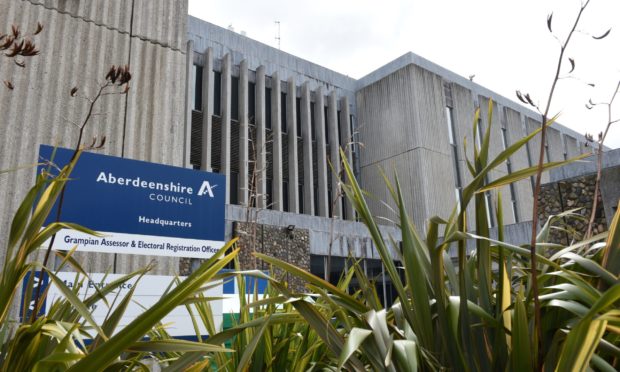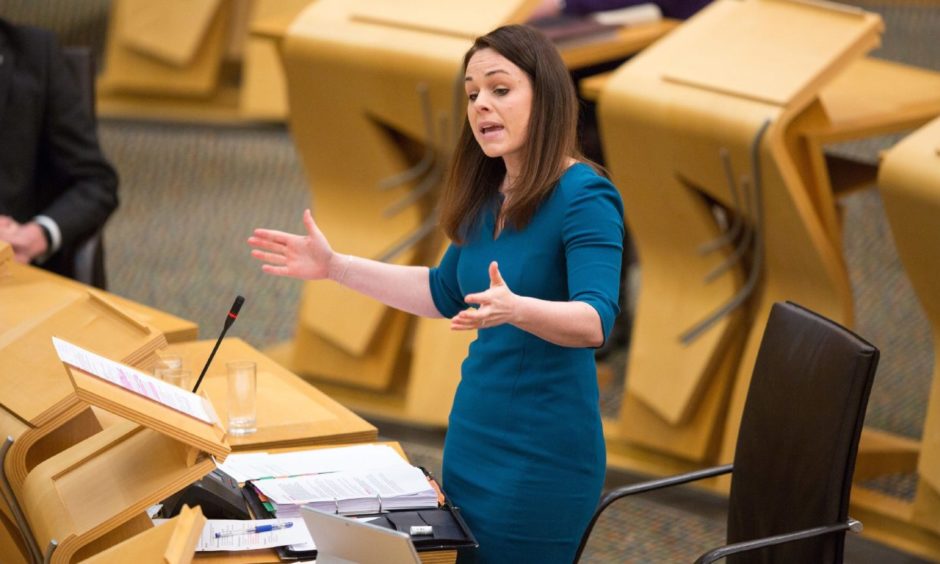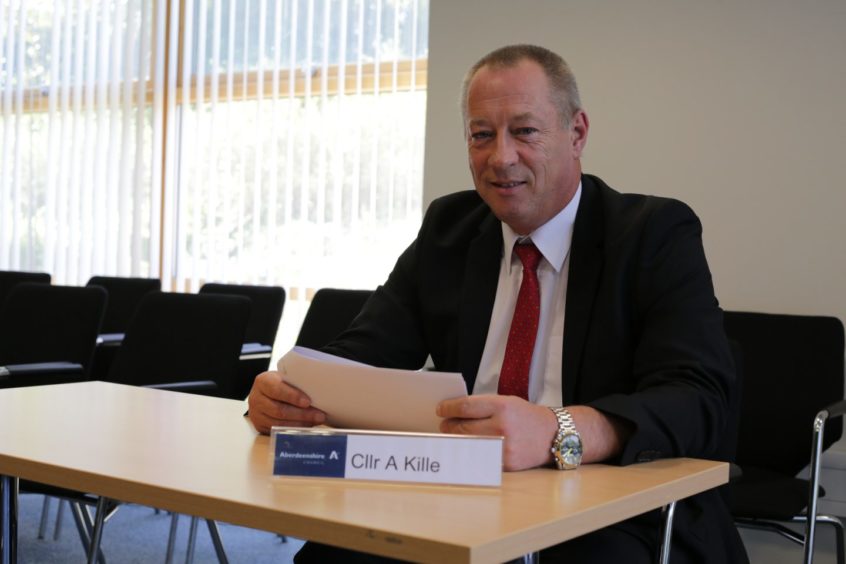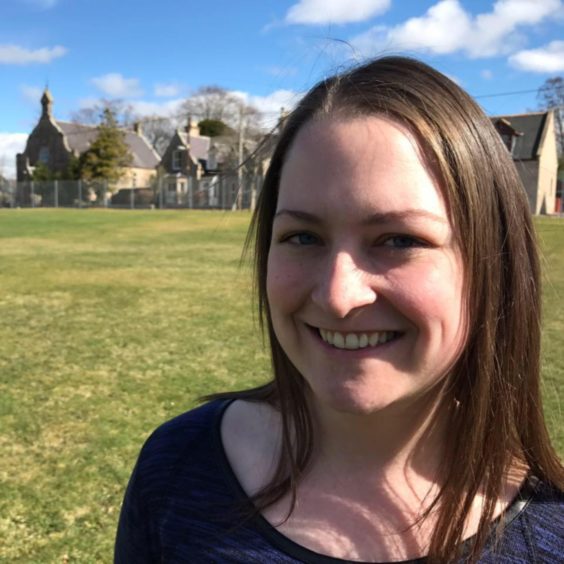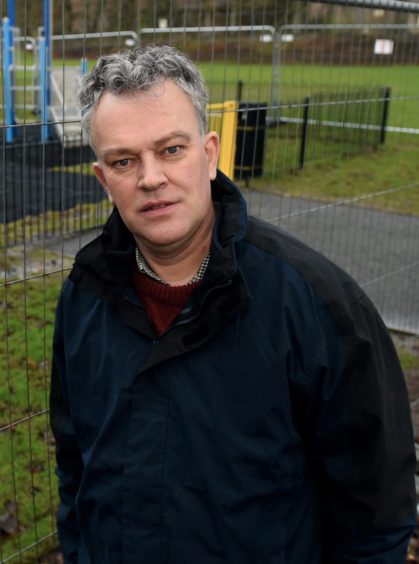Aberdeenshire Council has agreed to freeze council tax for the next year.
At the Scottish budget last month, Finance Secretary Kate Forbes announced a £90m fund to compensate local authorities who opt to keep their council tax the same for the upcoming year.
The compensatory cash – £4.7million for Aberdeenshire – is the equivalent of around a 3% increase for councils that decide to freeze its council tax.
Today, councillors voted by 59 votes to four to accept the offer, meaning the council tax for an average band D household will remain at £1,300.81 for the year ahead.
Opposition group the Democratic Alliance had argued against the proposal, moving an amendment for the offer to be refused and warned it could have a long-term impact on services and mean more cuts.
They argued council tax should be increased unless assurances could be given that financial support would be offered again in years to come.
Council leader Andy Kille acknowledged the potential repercussions, but said the authority should take the Scottish Government’s cash and freeze the bills for the year ahead to help families in Aberdeenshire who have endured “incredibly difficult” year as a result of the pandemic.
Mr Kille said: “Members will be aware that the Scottish Government has offered compensation to councils who choose to freeze their council tax rates.
“In real figures, the compensation offered is the equivalent of just over a 3% council tax rise, or about £4.7m.
“If we consider this last year’s council tax income as 100%, and if, I repeat if, we choose to increase today by 3%, the baseline for any potential increase next year would be 103%, and so on thereafter.
“But if we chose the compensation and the council tax freeze option, although the £4.7m compensation offered would replace any council tax rise income this year, it will mean our baseline next year is still at 100%.
“Which is over £4m below where it could be and the same, compounded, every future year thereafter.
“In the short term, the potential council tax increase money is replaced by the Scottish Government for this year, but what about the long-term?
“This compensation needs to be incorporated into the annual revenue grant, to guarantee that ongoing level of funding.
“We are asking for this, it is being considered, but as yet we cannot be sure it will happen.
“Nonetheless, the administration recognising that some in our communities will be struggling after this incredibly difficult last year has decided to accept that offer of compensation, and we will freeze the council tax rate for this coming year.
“Of course, this is not to say the next few months will not be without their challenges. The world is changing, and we need to change with it.
“The uncertainty of our financial position from one year to the next makes budget-setting difficult, and our ability to forecast longer-term bases has also been impacted by the pandemic.
“However, I am confident that setting council tax today provides clarity and reassurance for the people of Aberdeenshire, allows us all to plan for the year ahead, and will be an integral part of the council’s medium-term financial strategy.”
Councillor Gwyneth Petrie, leader of the SNP group on Aberdeenshire Council, also backed the freeze and taking the Scottish Government’s support.
She said: “There is much negotiation to still be had at the Scottish Parliament before any of the budget settlement to the council is finalised, but we must make a decision today on the basis of what information we do have.
“We therefore also support freezing the council tax.
“At a time when there is continuing economic uncertainty due to the pandemic, and where many of our residents are living in increasingly difficult financial circumstances, it is incumbent upon us to consider the impact that a rise in council tax bills would have on those we represent.”
She added: “Whilst there may be consequences from our decision today for the next financial year, I don’t believe that burden should fall unnecessarily on the shoulders of the residents we represent at a time when they face the uncertainty that they do.
“It is up to each of us to make representations about how we feel about baselining to the parliament to get the outcome we desire from that.”
Democratic Independent and Green Group (Digg) councillor Martin Ford put forward the amendment asking for the council to not take the government’s cash and freeze council tax, unless assurance was provided the £4.7m of funding offered would be recurring in years to come.
Under Mr Ford’s amendment, if such a guarantee was not secured in a timely manner and be reflective of inflation, the council would increase council tax by 4.8% – meaning council tax for an average Band D household would be £1,363.25.
Mr Ford said: “The council is facing a both acute and chronic financial crisis, and it will take us years to recover from this.
“A decision now that makes life more difficult next year is not a sensible thing to do, and bluntly our position is the council can’t afford to do that.
“We will still be under great financial pressures next year and for several years to come, so we must know whether this is recurring.
“We do need to show leadership on this. We should be clear that the Scottish Government has offered us a lousy deal, which as it stands, will leave the council with an even bigger problem next year that we would otherwise have.
“The council should not just roll over and accept this without a fight. I am not indicating we head off to parliament and start a riot, but we need to say this is not good enough.
“This will undoubtedly help the Scottish Government electorally ahead of an election, but will create great problems in a year’s time, so we need to look ahead and think strategically.”
During the meeting, councillors also agreed to increase average weekly rents for council housing in Aberdeenshire by £2.29, a rise from £81.82 to £84.11.
